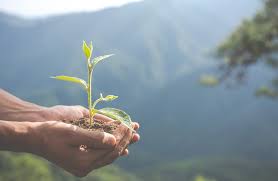Agriculture waste management is a critical issue in Egypt, as the country's agricultural sector generates a significant amount of waste ...
Agriculture waste management is a critical issue in Egypt, as the country's agricultural sector generates a significant amount of waste that needs to be effectively managed to minimize environmental impact and maximize resource utilization. In recent years, there has been an increasing emphasis on implementing sustainable solutions for agriculture waste management in Egypt. This paper explores the current challenges and potential sustainable solutions for improving agriculture waste management in Egypt.
Improving Agriculture Waste Management in Egypt: Sustainable Solutions focuses on finding sustainable and efficient ways to manage agricultural waste in the country. This involves addressing the challenges of waste disposal, reducing the environmental impact of agricultural waste, and finding opportunities for recycling or reusing agricultural by-products. The goal is to improve the overall sustainability of the agricultural sector in Egypt while minimizing the negative effects of waste on the environment and public health. This may involve the implementation of new technologies, policies, and practices to better manage and utilize agricultural waste in a more sustainable manner.
Challenges of Agriculture Waste Management in Egypt
corporate environmental services Egypt

Agriculture waste management in Egypt faces several challenges, including lack of proper infrastructure for waste disposal and recycling, inadequate funding and resources for waste management projects, and limited public awareness and participation in waste reduction initiatives. Additionally, the use of outdated agricultural practices and technologies contributes to the generation of large amounts of waste, further complicating effective management efforts. Furthermore, the improper disposal of agricultural waste can lead to environmental pollution, soil degradation, and health hazards for both the environment and the local communities. To address these challenges, there is a need for improved government policies, increased investment in waste management infrastructure, and greater collaboration between farmers, industry stakeholders, and local communities to promote sustainable and responsible waste management practices in the agricultural sector.
Impact of Agriculture Waste on Egyptian Environment

Agriculture waste in Egypt has a significant impact on the environment. The burning of crop residues and leftover plant material releases harmful pollutants and greenhouse gases into the atmosphere, contributing to air pollution and climate change. Additionally, the improper disposal of agricultural chemicals and fertilizers can contaminate soil and water sources, leading to soil degradation and water pollution. This can have detrimental effects on the health of ecosystems, wildlife, and human populations. Efforts to manage and mitigate the impact of agriculture waste on the Egyptian environment are essential for sustainable agricultural practices and environmental conservation.
Innovative Solutions for Agriculture Waste Disposal in Egypt

Innovative solutions for agriculture waste disposal in Egypt could include the use of biogas technology to convert organic waste into energy. This not only helps dispose of waste in an environmentally friendly manner but also provides an alternative energy source for rural communities. Additionally, the implementation of composting techniques can be beneficial for improving soil fertility and reducing the need for chemical fertilizers. Other potential solutions may involve the development of waste-to-fuel conversion facilities, and the promotion of recycling and waste reduction practices within the agricultural sector. These initiatives can contribute to addressing the waste management challenges faced by the Egyptian agricultural industry.
Economic Benefits of Effective Agriculture Waste Management in Egypt

Effective agriculture waste management in Egypt can lead to several economic benefits. Firstly, proper management of agricultural waste can help in the production of biofuels and other renewable energy sources, which can reduce the dependency on non-renewable energy sources and lower energy costs for farmers and the overall economy. Additionally, agricultural waste can be recycled and used as organic fertilizers, which can improve soil health and increase crop yields. This, in turn, can lead to higher agricultural productivity and increased income for farmers. Furthermore, effective waste management can also create opportunities for new industries and jobs in the recycling and waste management sector, contributing to economic growth and creating employment opportunities. Overall, by managing agricultural waste effectively, Egypt can not only mitigate environmental issues but also harness economic benefits for the agriculture sector and the economy as a whole.
Role of Government in Agriculture Waste Management Policies in Egypt
The role of the government in agriculture waste management in Egypt is focused on implementing policies and regulations to ensure proper disposal and treatment of agricultural waste. The government is responsible for creating and enforcing laws that require farmers and agricultural businesses to responsibly manage their waste, including crop residues, animal manure, and other byproducts. This can involve promoting the use of sustainable agriculture practices, encouraging the adoption of waste management technologies, and providing support and incentives for the proper disposal and recycling of agricultural waste. Additionally, the government may also be involved in funding research and development of innovative waste management solutions, as well as raising awareness and providing education on the importance of sustainable waste management practices in the agriculture sector.
Sustainable Practices for Agriculture Waste Reduction in Egypt<
corporate environmental services Egypt/h2>
Egypt faces significant challenges in managing agricultural waste, as the country is one of the largest agricultural producers in the Middle East. To reduce this waste, implementing sustainable practices is crucial. One approach to minimizing agricultural waste in Egypt is through the adoption of modern technology and techniques. Utilizing precision agriculture, for instance, can help farmers optimize resources such as water, fertilizers, and pesticides, leading to reduced waste and increased efficiency. Furthermore, promoting the use of organic waste for composting can help in managing agricultural waste. By turning agricultural residues into compost, farmers can enhance soil fertility and structure, while simultaneously reducing the amount of waste that needs to be disposed of. Additionally, the implementation of sustainable crop rotation and diversification practices can contribute to reducing agricultural waste in Egypt. Such practices can improve soil health, reduce the reliance on chemical inputs, and decrease the amount of leftover plant materials that typically contribute to agricultural waste. Moreover, the government and relevant authorities in Egypt can also play a vital role in incentivizing and supporting sustainable agricultural practices. Providing subsidies or financial assistance for farmers who adopt sustainable waste reduction techniques can encourage widespread adoption of these practices. Overall, the combination of technology, composting, crop rotation, and government support can significantly promote sustainable practices for reducing agricultural waste in Egypt. By addressing this issue, the country can move towards a more environmentally friendly and efficient agricultural sector.
Collaborative Efforts for Agriculture Waste Management in Egypt
Collaborative efforts for agriculture waste management in Egypt involve various stakeholders, including government agencies, non-governmental organizations, research institutions, and local communities. These efforts focus on implementing sustainable and environmentally friendly practices to reduce, reuse, and recycle agricultural waste. This includes promoting the use of organic waste as fertilizers, developing biogas facilities to convert waste into energy, and raising awareness among farmers about the importance of proper waste management. Additionally, these collaborative efforts aim to create economic opportunities for small-scale farmers through the establishment of waste collection and processing centers. Overall, the goal is to mitigate the environmental impact of agriculture waste while improving the livelihoods of rural communities in Egypt.
